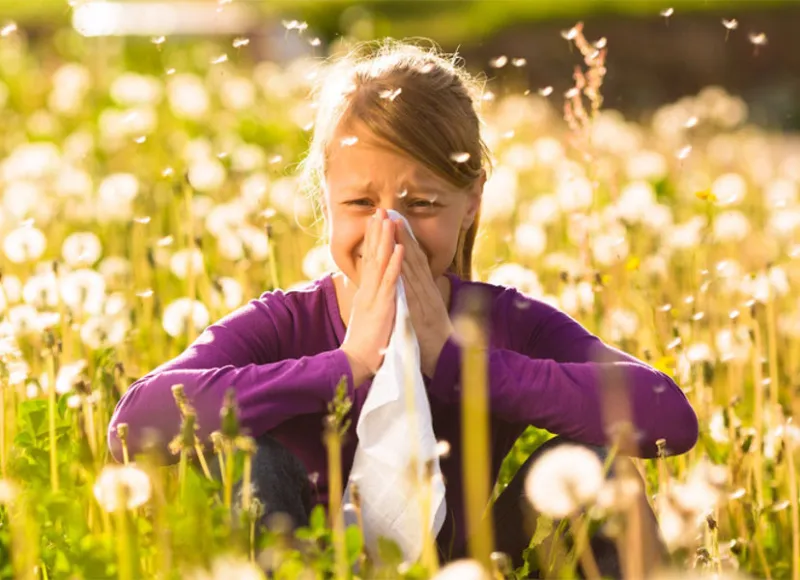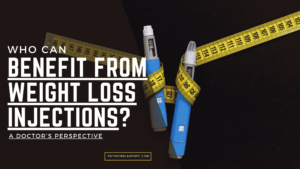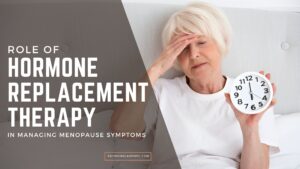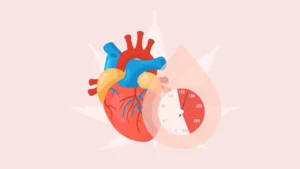Spring has arrived in New York City, bringing with it the start of allergy season. As trees and flowers bloom across the city’s parks and streets, pollen fills the air, triggering seasonal allergies for many residents and visitors.
Common allergy symptoms include sneezing, runny nose, itchy eyes, and congestion. These symptoms can range from mild annoyances to more severe reactions that impact daily life. Understanding local pollen patterns and taking preventive measures can help minimize discomfort.
Dr. Raymond Lau Family Medicine PC offers expert guidance for managing seasonal allergies in New York City. Their team provides personalized treatment plans to help patients navigate allergy season effectively, including medication recommendations and lifestyle adjustments tailored to individual needs.
Understanding Allergy Season in New York
Allergy season in New York City can be challenging for many residents. The city’s unique environment and diverse plant life contribute to a variety of allergens that affect people throughout the year.
Common Allergens in New York
New York City harbors several common allergens that trigger allergic reactions. Tree pollen from oak, birch, and maple trees is prevalent in spring. Grass pollen becomes abundant in late spring and early summer.
Ragweed pollen emerges as a major allergen in late summer and fall. Mold spores thrive in damp areas year-round, peaking in humid summer months. Dust mites are common indoor allergens, especially in older buildings.
Dr. Raymond Lau Family Medicine PC offers allergy testing and treatment for these common New York allergens.
Seasonal Changes and Pollen Levels
Pollen levels in New York fluctuate with seasonal changes. Spring typically sees high tree pollen counts, peaking in April and May. Grass pollen dominates in June and July.
Ragweed pollen becomes prominent from August through October. Warm, windy days often lead to higher pollen counts. Rain can temporarily reduce airborne pollen but may increase mold spore levels.
Winter brings relief from outdoor allergens, but indoor allergens like dust mites may intensify as people spend more time indoors.
Importance of the Allergy Forecast
The allergy forecast is a crucial tool for New Yorkers managing allergies. It predicts pollen levels and identifies dominant allergens for upcoming days.
This information helps individuals plan outdoor activities and take preventive measures. High pollen days may warrant staying indoors or using air purifiers.
Many weather apps and websites provide daily allergy forecasts for New York City. Local allergists, including Dr. Raymond Lau Family Medicine PC, often use these forecasts to guide patient care and medication adjustments.
Recognizing and Managing Allergy Symptoms
Seasonal allergies can cause a range of uncomfortable symptoms and disrupt daily life. Identifying these symptoms and exploring effective treatment options can help New Yorkers manage their allergies more effectively.
Typical Symptoms of Seasonal Allergies
Common allergy symptoms include sneezing, itchy eyes, and a runny or stuffy nose. Many people experience persistent nasal congestion, which can lead to headaches and fatigue. Itchy throat and ears are also frequent complaints.
Allergic reactions may cause skin irritation or rashes in some individuals. Watery eyes and dark circles under the eyes, known as “allergic shiners,” can occur. Some people might develop a cough due to postnasal drip.
Dr. Raymond Lau Family Medicine PC advises patients to track their symptoms and potential triggers to better understand their allergies.
Allergy Treatment Options
Antihistamines are a popular first-line treatment for allergy symptoms. These medications block histamine, reducing sneezing, itching, and runny nose. Both oral tablets and nasal sprays are available.
Nasal corticosteroid sprays can effectively reduce inflammation in the nasal passages. They often provide relief from congestion and other nasal symptoms. Decongestants may offer short-term relief but should be used sparingly.
For severe allergies, immunotherapy options like allergy shots or sublingual tablets can help build tolerance to specific allergens over time. Dr. Raymond Lau Family Medicine PC can assist in determining the most suitable treatment plan for individual patients.
Non-Medicinal Remedies
HEPA air purifiers can significantly reduce indoor allergens by filtering out pollen, dust, and pet dander. Regular cleaning and vacuuming with a HEPA-filter vacuum cleaner can also help maintain a low-allergen environment.
Nasal irrigation using a neti pot or saline spray can flush out allergens and mucus from the nasal passages. This simple technique often provides quick relief from congestion and irritation.
Wearing sunglasses outdoors can protect eyes from airborne allergens. Showering and changing clothes after spending time outside can remove pollen from skin and hair, reducing prolonged exposure.
Prevention and Long-Term Allergy Management
Effective allergy management involves personalized care, expert guidance, and practical strategies to minimize exposure to allergens.
Allergy Testing for Personalized Care
Allergy testing is crucial for tailoring treatment plans. Blood tests and skin prick tests can identify specific allergens triggering symptoms. Dr. Raymond Lau Family Medicine PC offers comprehensive allergy testing services.
At-home allergy tests are available but may lack accuracy. Professional tests provide more reliable results and expert interpretation.
Understanding individual triggers allows for targeted prevention and treatment strategies. This knowledge empowers patients to make informed decisions about their environment and lifestyle.
Professional Advice from Allergists and Immunologists
Allergists and immunologists play a vital role in managing allergies. These specialists can develop personalized treatment plans based on test results and patient history.
Treatment options may include antihistamines, nasal sprays, or immunotherapy. Allergy shots can help reduce sensitivity to specific allergens over time.
Dr. Raymond Lau Family Medicine PC collaborates with allergists to provide comprehensive care. This team approach ensures patients receive expert guidance and support throughout their allergy management journey.
Environmental Control Strategies
Minimizing exposure to allergens is key for long-term management. For indoor allergies, use high-efficiency air filters and maintain low humidity levels.
Regular cleaning, including vacuuming with HEPA filters, can reduce dust mites and pet dander. Encasing mattresses and pillows in allergen-proof covers is also effective.
For outdoor allergens, monitor pollen forecasts and limit outdoor activities on high-pollen days. Shower after spending time outside to remove pollen from skin and hair.
Keep windows closed during peak allergy seasons. Use air conditioning to filter outdoor air. Remove shoes when entering the home to prevent tracking in allergens.
Frequently Asked Questions
Allergy season in New York City brings unique challenges for residents. Understanding common concerns can help people better prepare and manage their symptoms.
What allergens are most prevalent in New York City during allergy season?
Tree pollen, grass pollen, and mold spores are the main culprits in NYC. Oak, birch, and maple trees release significant amounts of pollen in spring. Ragweed becomes prominent in late summer and fall.
What are the peak months for allergy season in New York City?
April through June typically sees the highest pollen counts. A second peak occurs from August to October due to ragweed. Indoor allergens like dust mites can cause year-round symptoms.
How long does the tree pollen season typically last in New York?
Tree pollen season in NYC usually starts in March and continues through May. Some years may see an earlier start or later finish depending on weather conditions.
What should New Yorkers expect during the high pollen count season?
Increased sneezing, runny nose, and itchy eyes are common. Some people may experience fatigue or headaches. Air quality alerts become more frequent during peak pollen days.
Which months are considered the worst for allergy sufferers in New York City?
May often ranks as the most challenging month. September can also be difficult due to ragweed. Individual experiences may vary based on specific allergen sensitivities.
Are there any effective tips for managing allergies during the New York allergy season?
Staying indoors on high pollen count days can help. Using air purifiers and keeping windows closed can reduce exposure. Dr. Raymond Lau Family Medicine PC recommends consulting an allergist for personalized treatment plans.







